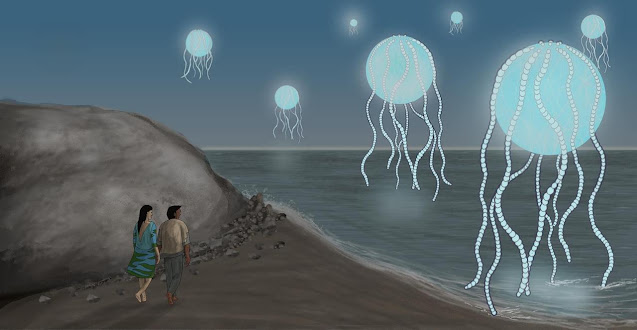Down The Rabbit Hole … part 2 - Is that a fact?
But first we need to establish exactly what we mean by the term “scientific facts”. According to the National Centre for Science Education:
“In science, an observation that has been repeatedly confirmed and for all practical purposes is accepted as “true.” Truth in science, however, is never final and what is accepted as a fact today may be modified or even discarded tomorrow.”
Now, that might alarm some people. Is science really such an uncertain endeavour? Closer consideration of the scientific method, however, shows us that what might at first appear to be a weakness is actually a strength.
For example: In 1930 the astronomer Clyde Tombaugh discovered an object orbiting the Sun beyond the orbit of Neptune. This was to be named Pluto, the ninth planet of the solar system. However, in 2006 the International Astronomical Union reclassified Pluto as a ‘dwarf planet’, returning the number of actual planets in the solar system to a total of eight.
Pluto itself did not change, but the definition of the word ‘planet’ did. Observations made over the decades since 1930 showed that the solar system contains many objects of varying size, mass and properties. Learning more about these objects, they updated the definition of the word ’planet’ to include the characteristic that a planet has enough mass to clear all other large objects from its orbit. Pluto’s orbit crosses that of Neptune, so it does not qualify.
The previous scientific fact that our solar system contains nine planets has now been changed.
Does that mean that science is nothing but subjective opinions? No, it means that science can be adapted when new data comes to light.
Does this mean that we should not trust science, if it can be changed? On the contrary, it is a reason to trust science even more.
If science did not update when presented with more information, that would be a weakness.
“Science is not the truth. Science is finding the truth. When science changes its opinion, it didn’t lie to you. It learned more.”
― Brené Brown, Atlas of the Heart: Mapping Meaningful Connection and the Language of Human Experience
For this reason, scientists do not talk about scientific facts being proved or disproved – implying a standard of absolute truth – but in terms of strength of evidence.
For example, evolution is regarded as a scientific fact not because we believe there is no possibility of it being wrong, but because of the tremendous amount of evidence that supports it. We have countless fossils that demonstrate gradual changes in species over long periods of time, plus the evidence from DNA that fully backs up the indications in the fossil record that many species alive today share common ancestors (for example: birds and mammals are descended from reptiles).
Is it possible that evolution might one day be disproved? Well, many things can be possible… but not everything is equally probable.
Evolution is a scientific theory (which is defined as a detailed, consistent explanation of a feature of the natural universe) built upon millions of pieces of evidence. In order for this theory to be discarded a new theory would have to be presented which also explains all of that evidence. Well over a century since Charles Darwin published On the Origin of Species, no such competitor has arisen. On the contrary, new discoveries are frequently being made that reinforce the validity of evolution theory.
So although scientific facts are defined in terms of probability this does not weaken their relevance. For example, paleontologist Stephen Jay Gould describes fact in science as meaning data, not known with absolute certainty but "confirmed to such a degree that it would be perverse to withhold provisional assent".
Therefore anyone wanting to challenge established science needs to present alternative theories that are more probable than the existing models… which is no easy task.
Does this stop certain people from trying? Not at all!


Comments
Post a Comment